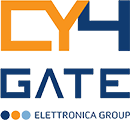PathAI Demonstrates the Potential of AI-based Characterization of the Tumor Microenvironment at ASCO
BOSTON, May 29, 2020 /PRNewswire-PRWeb/ -- PathAI, a global provider of artificial intelligence (AI)-powered technology for use in pathology research, announced the development of an AI-based assay for quantification of the tumor microenvironment (TME) and the application of the method using data from Genentech's, a member of the Roche Group, IMpower150 trial. IMpower150 is a Phase 3 study measuring the effect of carboplatin and paclitaxel (CP) combined with atezolizumab (Tecentriq®) (A) and/or bevacizumab (Avastin®) (B) in patients with advanced, non-squamous NSCLC. The findings of the analysis support the importance of the TME and vasculature in determining response to PD-L1 and VEGF-targeting therapies and shed light on potential mechanisms of action of combination therapy. PathAI and Genentech will present these findings in an oral presentation and poster presentation (Abstract #3130) at the upcoming American Society of Clinical Oncology 2020 (ASCO20) Virtual Scientific Program on May 29, 2020.
In the study, PathAI developed a deep learning-based TME assay and applied it to 1027 digitized H&E slide images from IMpower150 to generate a high dimensional set of human interpretable features (HIFs) characterizing the TME, including quantitative measurements of cancer cells, immune cells, stromal cells, and the cancer vasculature.
Statistical analyses were performed to identify HIFs associated with progression free survival (PFS) in the IMpower150 treatment groups. The analyses identified increased lymphocytes to fibroblast ratio (LFR) within the TME to be associated with improved PFS among patients receiving PD-L1 targeting therapy (ABCP and ACP) vs. low LFR (HR=0.64 (0.51, 0.81), p < 0.001). LFR showed no significant association with PFS among patients treated with BCP alone (HR=1.13 (0.85, 1.51), p=0.4). A machine-learning based method to quantify blood vessel compression (BVC) within the tissue showed variable association with PFS across treatment arms. Among patients receiving treatment with BCP (containing an anti-VEGF agent), higher BVC within the tumor tissue was associated with improved PFS vs. lower BVC (HR=0.67 (0.50,0.90), p=0.01) and worse PFS among patients treated with ACP (HR=1.50 (1.10,2.06), p=0.01).
Taken together, these findings demonstrate the utility of broadly examining the TME, including measurement of both vascular and immunological components, to dissect the biological basis of drug response in clinical trials of innovative combination therapies in immuno-oncology.
"We are excited about this first milestone as part of our multi-year Strategic Partnership with Genentech. The insights generated with the PathAI research platform demonstrates the potential power of digital pathology and AI technologies to advance cancer research and drug development," said PathAI co-founder and Chief Executive Officer Andy Beck, MD, Ph.D.
About PathAI
PathAI is a leading provider of AI-powered research tools and services for pathology. PathAI's platform promises substantial improvements to the accuracy of diagnosis and the efficacy of treatment of diseases like cancer, leveraging modern approaches in machine and deep learning. Based in Boston, PathAI works with leading life sciences companies and researchers to advance precision medicine. To learn more, visit pathai.com
Tecentriq® (atezolizumab) and Avastin® (bevacizumab) are registered trademarks of Genentech, a member of the Roche Group.
SOURCE PathAI



